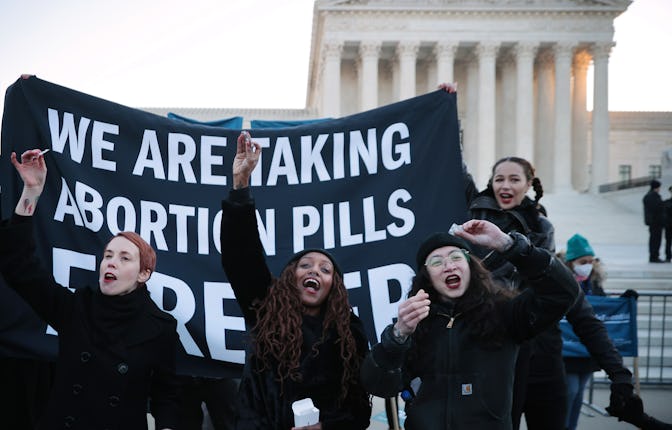Why having access to abortion pills by mail matters
The pandemic removed an oppressive barrier to access for people all over the U.S.

As the Supreme Court continues to contemplate a case that could overturn Roe v. Wade, there is finally a bit of good news. This week, the FDA announced that it will allow people across the country to get abortion pills by mail, a move that could facilitate the procedure for people living in states keen on banning abortion.
Before the pandemic, obtaining this medication was challenging in several regions, especially where abortion clinics were few and far between. You had to see a doctor in person just to get a prescription that consists of two pills: The first is mifepristone, which blocks the production of progesterone, the hormone that helps maintain pregnancy. The second pill, misoprostol, can be taken up to 48 hours later and causes cramping and bleeding, according to Planned Parenthood. In the U.S., 42% of people safely end an early pregnancy this way.
Earlier this year, the FDA lifted in-person requirements for prescribing mifepristone because of the pandemic and they are now extending that exemption permanently, per the New York Times. Patients will still need to be prescribed by a medical professional, which they can now do through a telemedicine appointment, and sign an agreement confirming that their medical provider gave them information about the process.
Although this is a promising step in the right direction, 19 states already have laws that ban mailing abortion pills, per the BBC. Depending on how those laws are challenged, the people in those states might still have to travel elsewhere for telemedicine appointments and have the pills delivered to an address within the states that do allow it.
But authorizing mail-in abortion pills on a national scale is an especially big win for Black and brown people, who are most often punished and criminalized for getting abortions and also much more likely to die from unintended pregnancies than their white counterparts. It’s still too early to tell how the FDA’s decision will play out in the real world, but this is better than nothing.